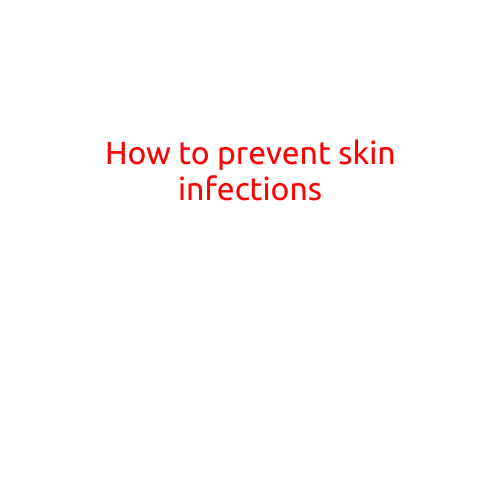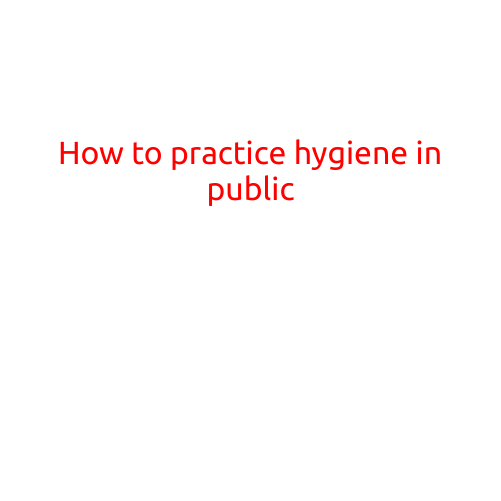
How to Prevent Skin Infections: A Comprehensive Guide
Skin infections are a common occurrence, and they can be quite uncomfortable and even painful. Whether it’s a minor scrape, a cut, or a more severe injury, the risk of infection is always present. However, with the right precautions and habits, you can significantly reduce the likelihood of developing a skin infection. In this article, we’ll explore the best ways to prevent skin infections and keep your skin healthy.
Why Skin Infections Happen
Before we dive into the prevention methods, it’s essential to understand why skin infections occur. Skin infections happen when bacteria, viruses, or fungi enter the body through open wounds, cuts, or breaks in the skin. The skin provides a natural barrier against infection, but when this barrier is compromised, the risk of infection increases.
Causes of Skin Infections
Several factors can increase your risk of developing a skin infection. These include:
- Improper wound care
- Poor hygiene
- Weakened immune system
- Close proximity to infected individuals
- Sharing personal care items
- Excessive sweating
- Skin conditions, such as eczema or psoriasis
Prevention Methods
Fortunately, there are several ways to prevent skin infections. Here are some effective methods to reduce your risk:
- Proper Wound Care: Clean and dress wounds promptly to prevent bacteria from entering the wound. Use antibiotic ointments and cover the wound with a bandage to protect it from further irritation.
- Improve Your Hygiene: Wash your hands regularly, especially after touching or cleaning a wound. Use soap and water, and dry your hands thoroughly.
- Keep Skin Clean and Dry: Shower or bathe regularly, and dry your skin thoroughly, especially after exercising or sweating.
- Use Antibiotic Ointments: Apply antibiotic ointments to minor cuts and scrapes to prevent infection.
- Avoid Sharing Personal Care Items: Sharing towels, razors, or other personal care items can spread bacteria and increase the risk of infection.
- Cover Wounds: Cover wounds with a bandage or dressing to prevent bacteria from entering the wound.
- Avoid Nailing or Piercing: Avoid nailing or piercing your skin, as this can introduce bacteria into the wound.
- Stay Hydrated: Drink plenty of water to keep your skin hydrated and healthy.
- Manage Skin Conditions: If you have a skin condition, such as eczema or psoriasis, manage it effectively to reduce the risk of infection.
- Get Enough Sleep: Get enough sleep to help your body recover from illness or injury and reduce the risk of infection.
Additional Tips
In addition to the prevention methods mentioned above, there are a few more tips to keep in mind:
- Avoid picking at or scratching wounds, as this can introduce bacteria into the wound.
- Use clean gloves when handling wounds or cleaning.
- Avoid sharing makeup or cosmetics, as these can contain bacteria.
- Consider using antiseptic wipes or sprays to clean wounds.
- Keep your nails short and clean to prevent bacteria from accumulating under your nails.
Conclusion
Skin infections are a common occurrence, but with the right precautions and habits, you can significantly reduce your risk. By following the prevention methods outlined in this article, you can keep your skin healthy and reduce the likelihood of developing a skin infection. Remember to always prioritize proper wound care, hygiene, and skin care to keep your skin healthy and infection-free.





